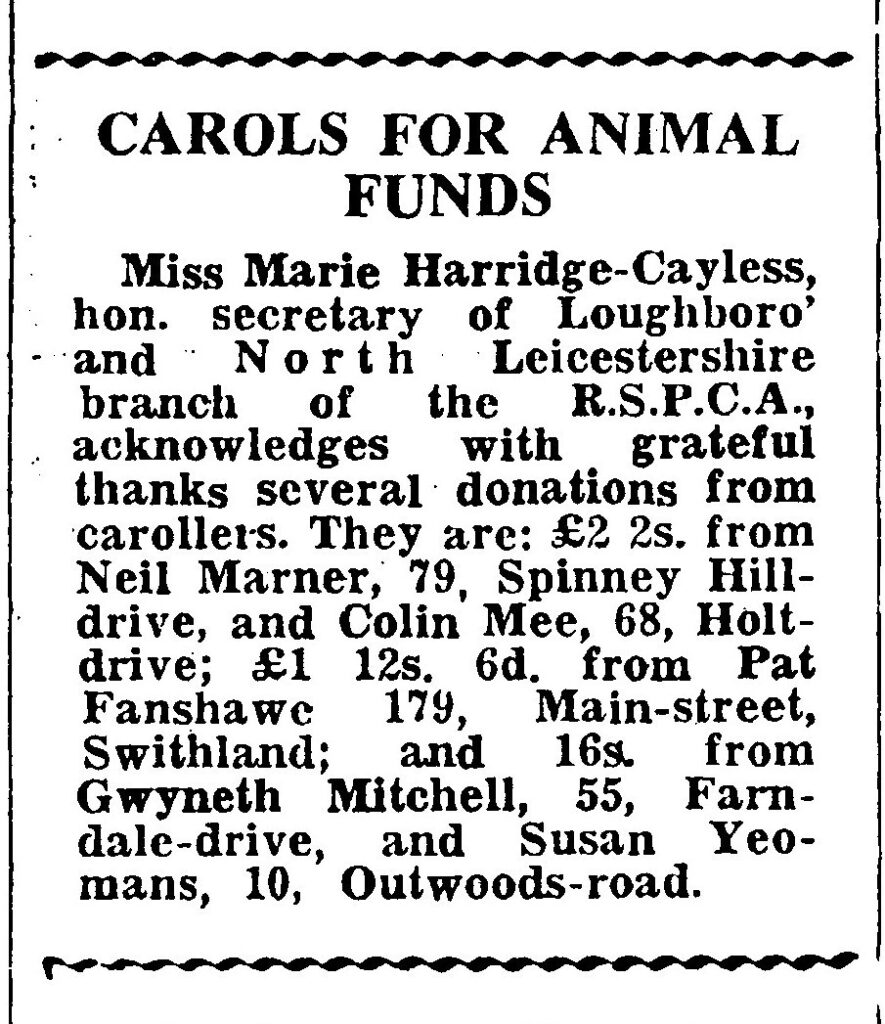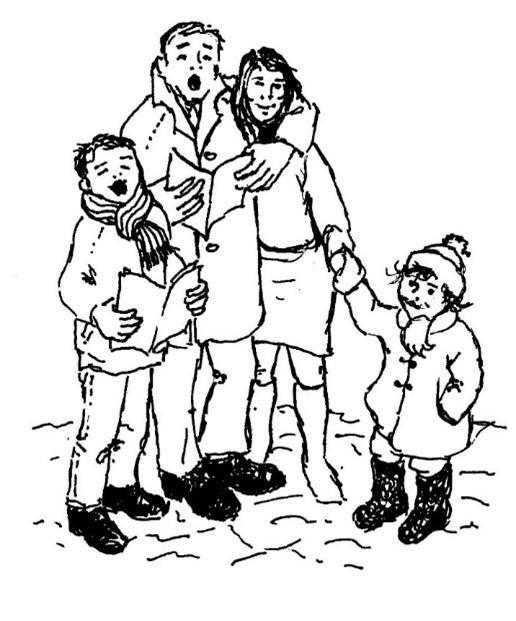‘Hark the Herald Angels …’
20 December 2020

What’s your favourite Christmas carol? (And is there one you really really hate when you hear it on repeat in a shop?) I don’t know if it’s just me but I still remember how cross Miss Roberts the Limehurst music teacher used to get when we took a breath in the wrong places:
‘Born the king of ay – en – juls!’
‘Don’t breathe in the middle, girls! It’s one word, not three!’
Carols have been sung in Europe since pagan times, with early Christians adopting the idea around 130 years after Christ’s birth and King Henry VIII himself said to have written one. But we might well have lost the habit if Oliver Cromwell had had his way.
He and his parliament banned any celebration of Christmas after winning the English Civil War. Luckily for us, the ban wasn’t popular and people sang carols in secret, making sure their words weren’t forgotten in the 15 years till King Charles II claimed back the throne.
In Victorian times, engineer and former MP Davies Gilbert (1767-1839), collected and published[1] the words and music of some of those ancient Christmas carols, and these were later extended into a three-volume collection[2] by solicitor and amateur historian William Sandys (1792–1874).
Many of the carols now considered ‘English classics’ make their first recorded appearance in these books, and along with Charles Dickens’ ‘A Christmas Carol,’ are said to have fed a mid-Victorian revival of the celebration of Christmas. They were quickly followed by a flood of new carols, written by well-known musical composers of the time.
Old Christmas carols have been remembered differently in different communities of the country, and in Yorkshire, Derbyshire and Nottinghamshire, there’s a tradition of following a circuit of villages to hear these variants being sung – generally in the pub! Listen to recordings of some of these traditional carols here and Aled Jones talking to folk singer Kate Rusby about it here.
Do you have memories of carol singing? I remember at 12 or 13 going over the hill through the University to sing around the Holywell Drive estate. One house embarrassed us by standing on the doorstep and asking for song after song (we expected them to pay up after one and go in!) At another, the bloke opened the door, shoved money at us and said ‘now bugger off, we’ve just got the kids to bed!’
My friend Jean (sadly no longer with us to retell her longer – and much funnier – version), once told us the story of a snowy evening’s carol singing in the mid-1990s, organised by ‘The Friends of Rendell’ to raise funds for the school.
‘Only a handful of us turned up. We went down Bottle Acre – the cat followed us all the way along the street. On Lower Cambridge Street, a student tipped a bucket of water out an upstairs window over Jackie’s coat. ‘Don’t tell your dad what number it was!’ she told the kids, but at school next day Mr Coleman said it was assault and he got the police involved anyway.’
My experience of carol singing in recent years has been in the warm at the Mayor’s Christmas Carol Service at All Saints’ Parish Church. It’s going to be live-streamed this year, at 7 pm on Monday 21st December. Click here for more information.
Listen to Loughborough Carillon’s Caroline Sharpe play ‘In The Bleak Midwinter’ here.
Read a short story about carol singing here.
Alison Mott
Sources:
Historyanswers.co.uk
Wikipedia
Whychristmas.com
[1] ‘Some Ancient Christmas Carols, with the Tunes to which they were formerly sung in the West of England,’ (Pub. J. Nichols and Son, London, 1822)
[2] ‘Christmas Carols Ancient and Modern (Pub. Richard Beckley, London, 1833)
